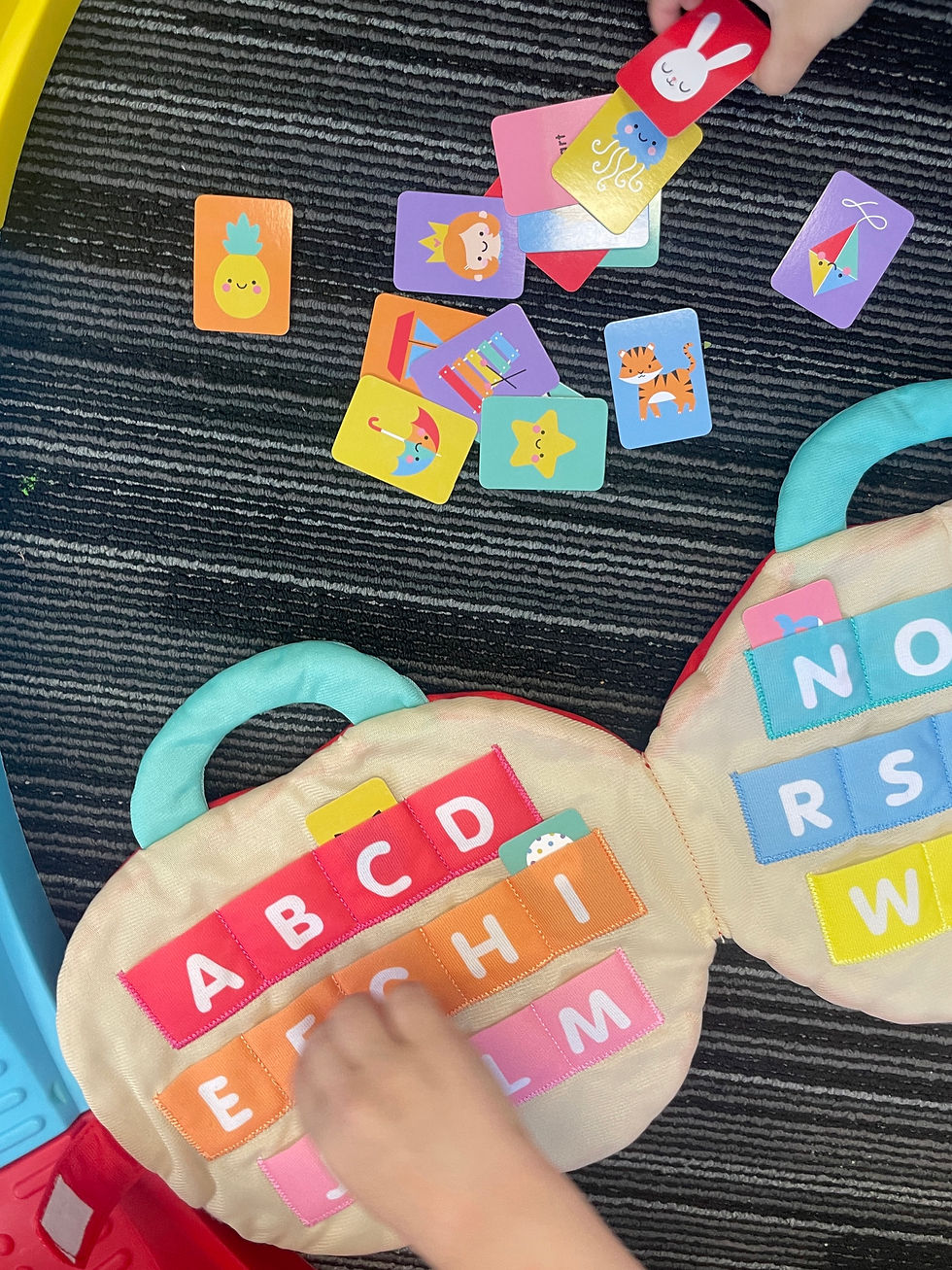🗣️ Home Program Activities to Support Social Skills
- claire2876
- Jul 28, 2025
- 2 min read

Fostering friendships, communication, and confidence with occupational therapy
Social skills help us connect with others, form relationships, and navigate everyday situations — from taking turns in a game to managing conflict, asking for help, or joining a group. For many people, especially those with developmental delays, autism, ADHD, anxiety, or social communication difficulties, these skills don’t come naturally and require structured support.
Occupational therapists play a key role in helping individuals build the foundational social skills needed for school, work, and community life. Home programs provide a safe environment to practise new strategies and grow social confidence. Below are some engaging, evidence-informed activities you can use at home, tailored by age group.
👶 Preschool Social Skills Activities
In early childhood, social skill development focuses on play, joint attention, communication, and emotional awareness.
Turn-taking games: Use simple board games or rolling a ball back and forth to practise waiting and sharing.
Emotion charades: Act out different feelings (happy, sad, scared, excited) and guess each one to improve emotion recognition.
Pretend play: Role-play with dolls, animals, or kitchen sets to explore social roles and routines.
Visual choice-making: Offer options and encourage your child to point or verbalise their choice — this supports communication and self-expression.
🧒 Primary School Social Skills Activities
Primary school children benefit from structured practice to improve conversation, cooperation, and emotional regulation.
Conversation cards: Create or print cards with conversation starters or “what would you do?” questions.
Feelings check-in: Use a visual emotions chart each day and encourage children to identify and talk about their feelings.
Role-play scenarios: Practise social situations like joining a group, asking for help, or resolving conflict.
Cooperative tasks: Build Lego together, bake, or complete a puzzle as a team to promote problem-solving and collaboration.
👦👧 High School Social Skills Activities
Teenagers often face complex social dynamics, peer pressure, and identity development. Social skill support here focuses on communication, boundaries, and self-advocacy.
Texting and digital etiquette: Practise writing polite messages, reading tone, and setting online boundaries.
Social scripts: Write and rehearse scripts for common situations like starting a conversation, declining invitations, or managing teasing.
Perspective-taking: Discuss movies or real-life stories and reflect on how different people may feel or think.
Interview practice: Role-play job interviews or oral presentations to build confidence in structured communication.
👨 Adults Social Skills Activities
Adults may benefit from social skills support related to work, community access, friendships, or daily interaction.
Workplace scenarios: Practise greetings, requesting assistance, or joining group conversations.
Community role-play: Simulate ordering at a café, making phone calls, or attending group events.
Conversation building: Use conversation apps, scripts, or real-time coaching during community outings.
Emotion regulation strategies: Practise deep breathing, journaling, or using visuals to help manage emotional responses during social interactions.

If you or your loved one needs support with social interaction, our occupational therapists can create a tailored program to build connection, communication, and confidence.
Our waitlist is open — make a referral today:









